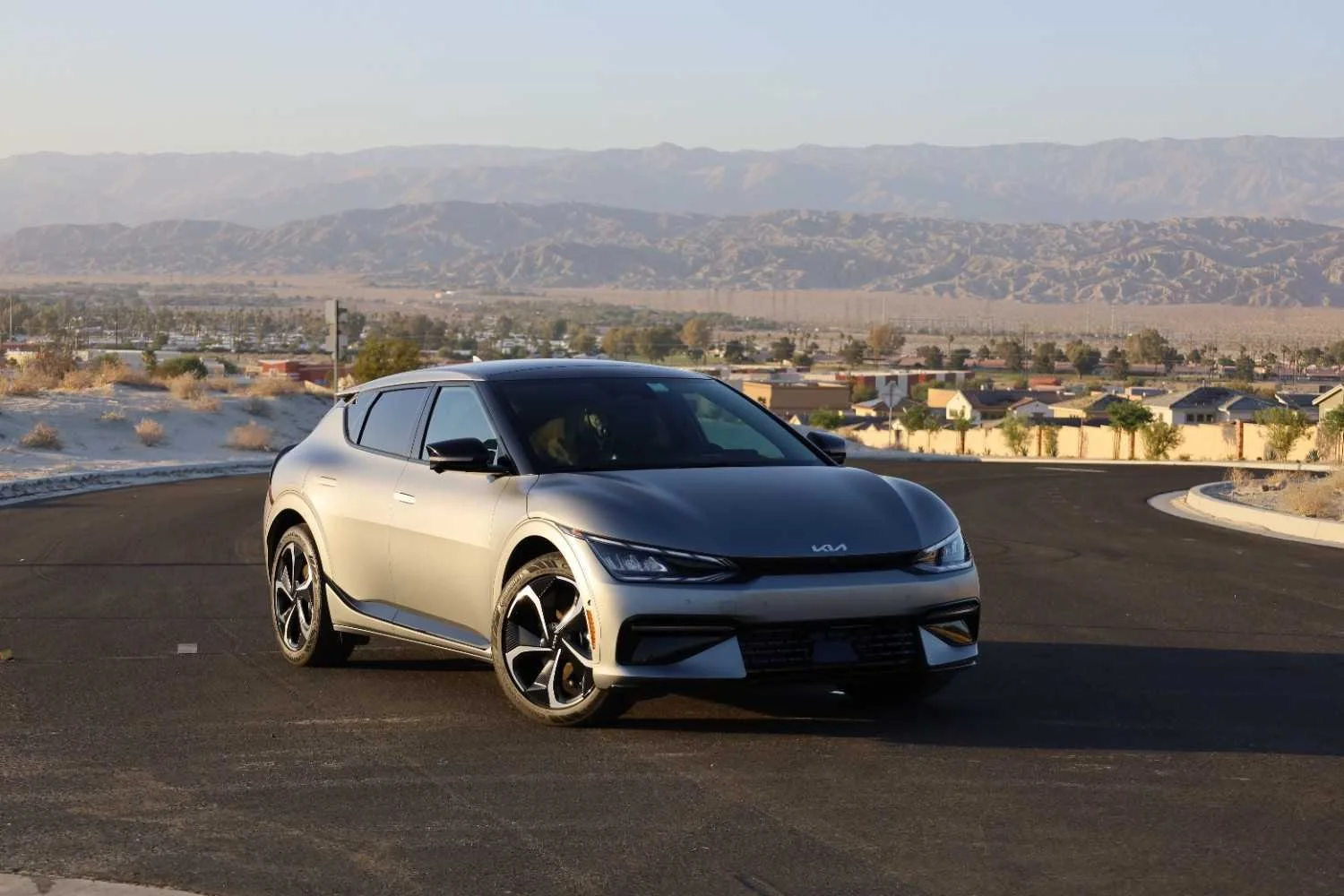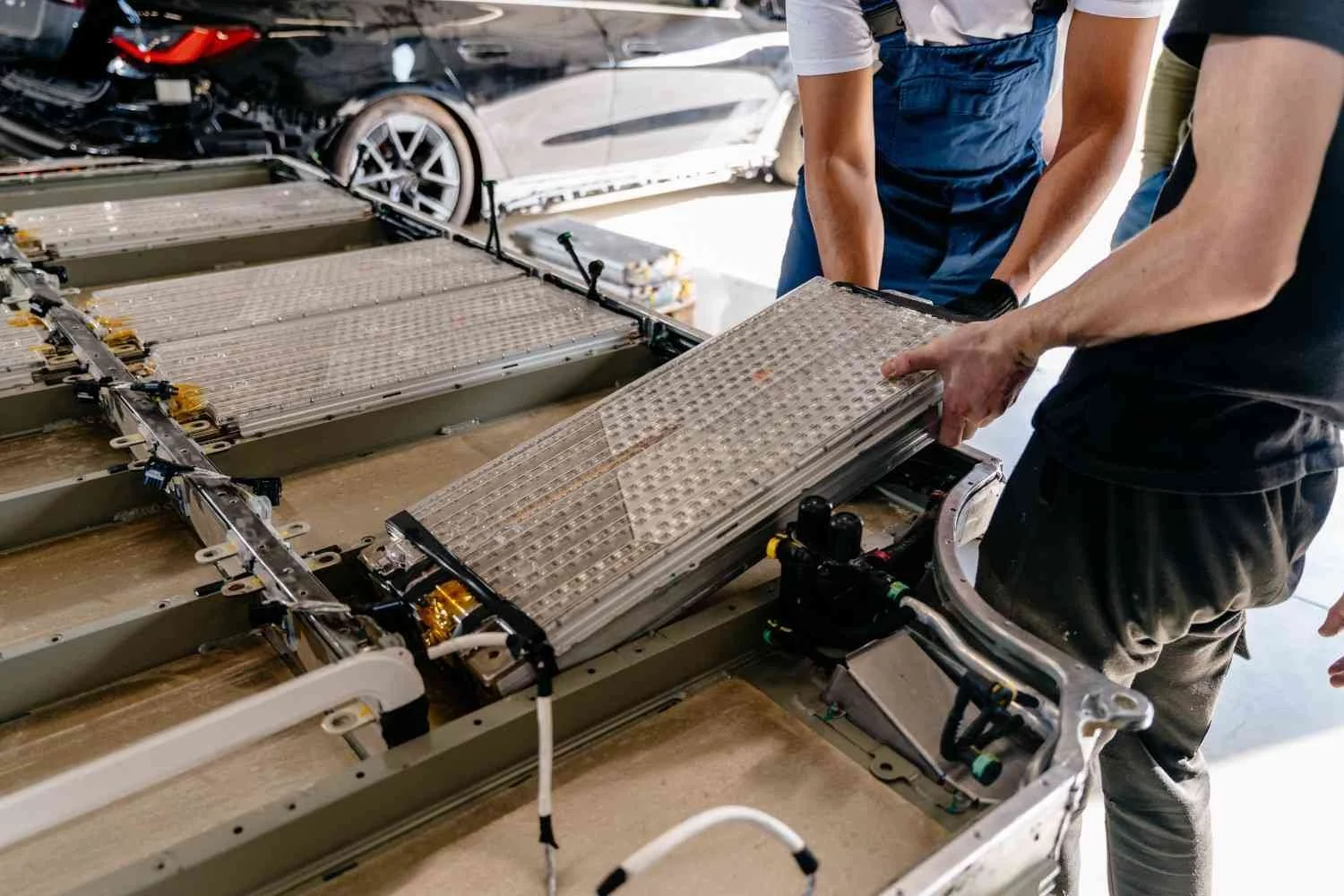The Top 6 Disadvantages of Electric Cars In The UK (2025)
In 2025, electric vehicles continue to gain popularity across the UK, with the government's zero-emission vehicle mandate requiring 22% of manufacturers' sales to be zero-emission vehicles this year, rising to 80% by 2030 and 100% by 2035.
Despite this push towards electrification, many drivers still have concerns about making the switch from traditional petrol or diesel vehicles. At The Electric Car Scheme, we understand these hesitations, which is why we've compiled the six biggest disadvantages of electric cars – and how you can overcome them.
Higher Upfront Purchase Costs
Electric cars typically cost more than their petrol or diesel counterparts. For example, electric models can be several thousand pounds more expensive than equivalent combustion engine vehicles.
Why are EVs more expensive?
Battery technology remains costly
Complex electrical systems increase manufacturing expenses
Insurance premiums tend to be higher
Production volumes aren't yet at the same scale as conventional vehicles
However, the overall cost picture changes dramatically when you consider the total cost of ownership. EVs cost significantly less to run, with the average petrol driver spending £1,268 annually on fuel compared to just £680 for electric car drivers. This means petrol drivers will have spent more on fuel by mid-July than EV drivers will all year!
Solution: EV Salary Sacrifice Schemes
An electric car salary sacrifice scheme makes EVs much more affordable. Through salary sacrifice, employees can reduce their costs by 20-50% compared to a personal lease. The scheme works by allowing employees to pay for their EV through their gross salary (before tax), rather than their take-home pay.
In 2025/26, the Benefit-in-Kind (BiK) rate for electric vehicles is now just 3%, making salary sacrifice extremely cost-effective for employees wanting to drive a new electric car.
Charging Infrastructure Limitations
Many potential EV drivers worry about finding a place to charge when they need it.
While this was a legitimate concern in the early days of EVs, the UK's charging network has expanded dramatically in recent years. As of July 2024, there are 66,779 electric vehicle charging points across 34,570 locations – a 46% increase from the previous year.
The government has set an ambitious target of installing 300,000 public EV charging stations by 2030. However, charging infrastructure can still be challenging in certain areas, particularly in rural regions or for those without off-street parking.
Solution: Home Charging & Route Planning
According to ZapMap's 2023 survey, 80% of EV owners have access to a home charger, which remains the most convenient and cost-effective way to charge. For journeys beyond your vehicle's range, apps like ZapMap can help you plan routes with charging stops along the way.
For those without driveway access, many workplaces now offer charging facilities, and on-street residential charging solutions are becoming increasingly available in urban areas.
Range Anxiety
Range anxiety – the fear of running out of charge before reaching your destination – remains one of the most common concerns for potential EV drivers.
Modern electric vehicles have made significant improvements in this area. The average EV now offers around 212 miles of range, more than double the 98 miles offered by the first-generation Nissan LEAF in 2015. Premium models like the Tesla Model 3 Long Range can travel over 350 miles on a single charge.
Solution: Improved Range & Driving Techniques
For most UK drivers who travel an average of 20 miles per day, even the most modest EV range is more than adequate. To maximise your range:
Use regenerative braking to recapture energy
Maintain steady speeds and avoid rapid acceleration
Keep tyres properly inflated to reduce resistance
Plan long journeys to include strategic charging stops
Consider temperature control usage, as heating and cooling can reduce range
Reduce unnecessary weight in the vehicle
Lengthy Charging Times
While refuelling a petrol or diesel car takes just a few minutes, charging an electric vehicle can take considerably longer. This is often cited as a major disadvantage of electric car ownership.
Charging times vary dramatically depending on the type of charger:
Home chargers (7kW): 6-12 hours for a full charge
Fast chargers (7-22kW): 3-6 hours for a full charge
Rapid chargers (50kW): 30-60 minutes for 10-80% charge
Ultra-rapid chargers (150kW+): 20-30 minutes for 10-80% charge
Solution: Adapting Your Charging Routine
Most EV owners find that charging becomes a simple part of their routine rather than an inconvenience. The key is changing your mindset from the "fill up when empty" approach of petrol cars to a "top up when convenient" approach with EVs.
Overnight home charging means you start each day with a full "tank," eliminating the need for regular visits to charging stations for daily driving. For longer journeys, strategic use of rapid chargers during natural breaks for coffee or meals minimises waiting time.
Battery Lifespan and Replacement Costs
Concerns about battery degradation and potential replacement costs can delay some drivers from making the switch to electric.
EV batteries typically last between 10-20 years or 150,000+ miles before significant degradation occurs. Most manufacturers offer battery warranties of 8 years or 100,000 miles, guaranteeing that the battery will retain at least 70% of its original capacity during this period.
Out-of-warranty battery replacement can be costly, potentially running into thousands of pounds. However, as battery technology improves and becomes more widespread, these costs are expected to reduce over time.
Solution: Battery Management and Warranties
To maximise battery life:
Avoid routinely charging to 100% or discharging below 20%
Use fast charging sparingly when possible
Park in moderate temperatures when feasible
When considering an electric car salary sacrifice scheme, the typical 2-4 year lease period means your vehicle will be well within the manufacturer's battery warranty period, eliminating concerns about replacement costs.
Challenges for Drivers Without Home Charging
The EV experience is significantly more convenient for drivers with access to home charging. Without off-street parking or the ability to install a home charger, relying solely on public charging infrastructure can be challenging and may complicate your charging routine.
Solution: Alternative Charging Options
If home charging isn't possible, consider these alternatives:
Regular use of local public charging points
On-street residential chargers, which are increasingly being installed in urban areas
Destination charging at supermarkets, leisure centres and shopping centres
Conclusion: Overcoming EV Disadvantages with Salary Sacrifice
While electric cars do have some disadvantages compared to conventional vehicles, many of these challenges are diminishing as technology improves and infrastructure expands. The financial barrier, often the biggest obstacle, can be significantly reduced through an electric car salary sacrifice scheme.
With savings of 20-50% compared to personal leasing and the current low BiK rate of just 3%, salary sacrifice makes electric car ownership more accessible than ever. These schemes allow you to bundle everything you need – including the vehicle, maintenance, insurance, and even a home charger – into one affordable monthly payment taken from your pre-tax salary.
As the UK continues its transition to zero-emission vehicles, electric car salary sacrifice offers an affordable way to embrace the future of motoring while avoiding many of the traditional disadvantages of EV ownership.
Ready to learn more about how salary sacrifice could help you overcome the challenges of electric car ownership? Contact The Electric Car Scheme today to discover how much you could save on your journey to greener driving.
You Might Also Like…
Last updated: 23/08/24
Our pricing is based on data collected from The Electric Car Scheme quote tool. All final pricing is inclusive of VAT. All prices above are based on the following lease terms; 10,000 miles pa, 36 months, and are inclusive of Maintenance and Breakdown Cover. The Electric Car Scheme’s terms and conditions apply. All deals are subject to credit approval and availability. All deals are subject to excess mileage and damage charges. Prices are calculated based on the following tax saving assumptions; England & Wales, 40% tax rate. The above prices were calculated using a flat payment profile. The Electric Car Scheme Limited provides services for the administration of your salary sacrifice employee benefits. The Electric Car Scheme Holdings Limited is a member of the BVRLA (10608), is authorised and regulated by the FCA under FRN 968270, is an Appointed Representative of Marshall Management Services Ltd under FRN 667174, and is a credit broker and not a lender or insurance provider.
Copyright and Image Usage: All images used on this website are either licensed for commercial use or used with express permission from the copyright holders, in compliance with UK and EU copyright law. We are committed to respecting intellectual property rights and maintaining full compliance with applicable regulations. If you have any questions or concerns regarding image usage or copyright matters, please contact us at marketing@electriccarscheme.com and we will address them promptly.






